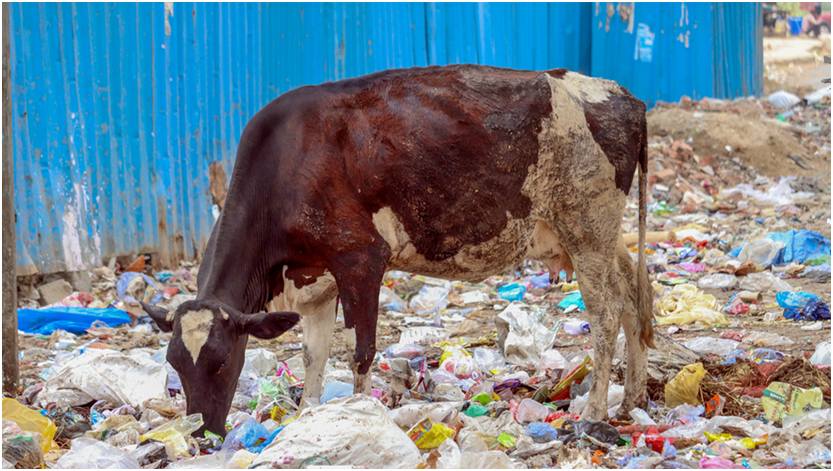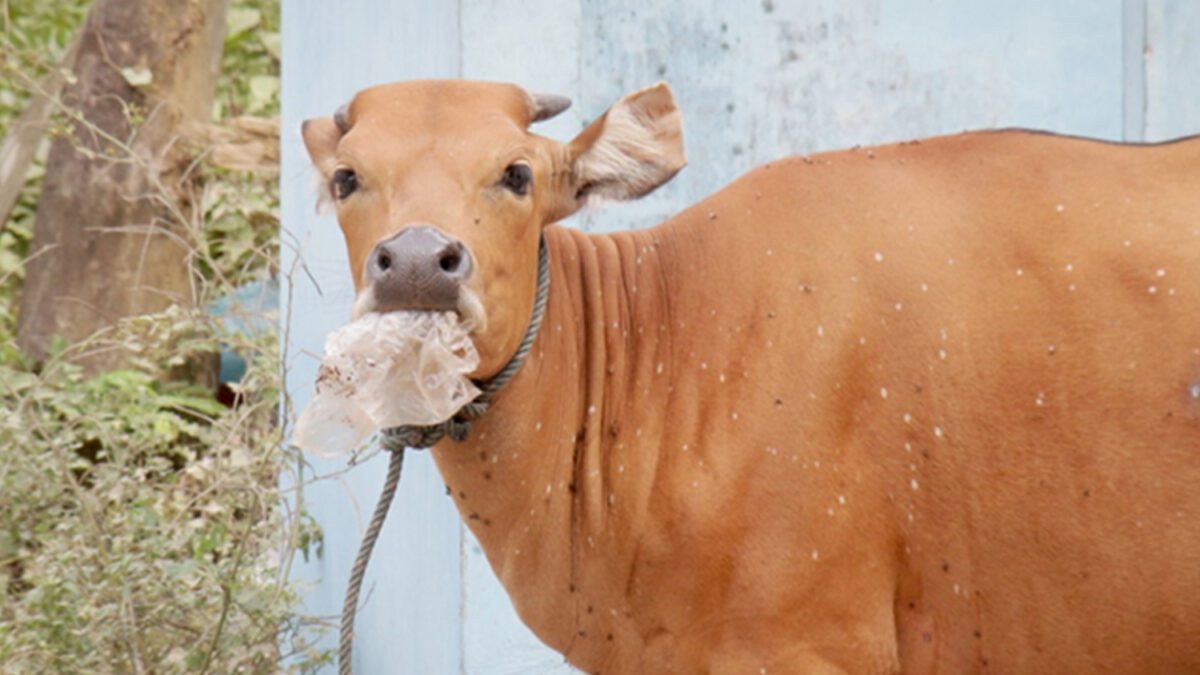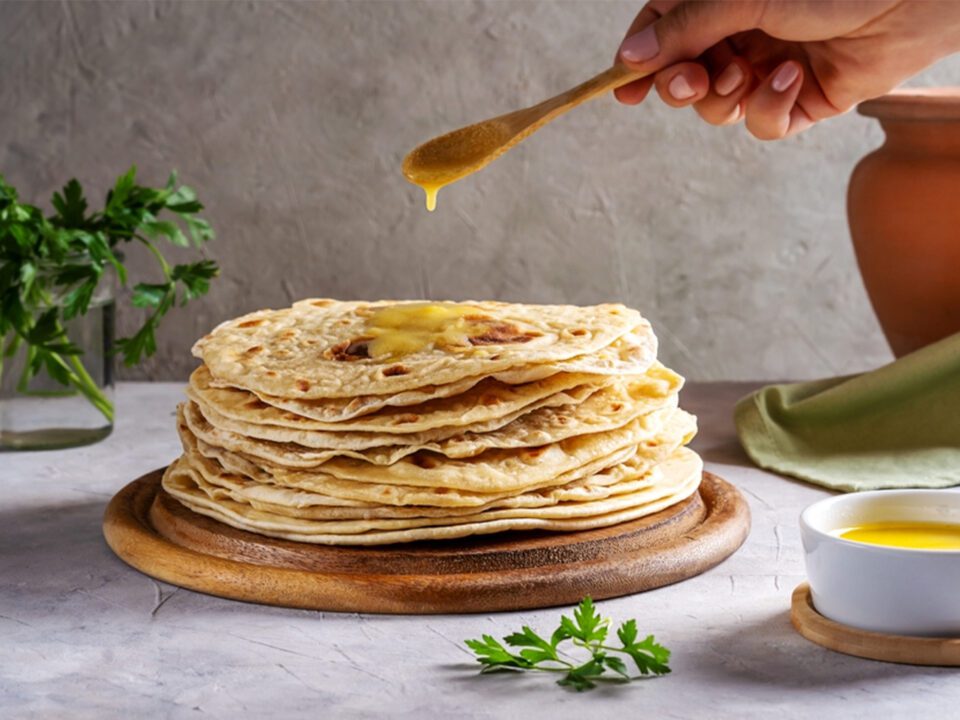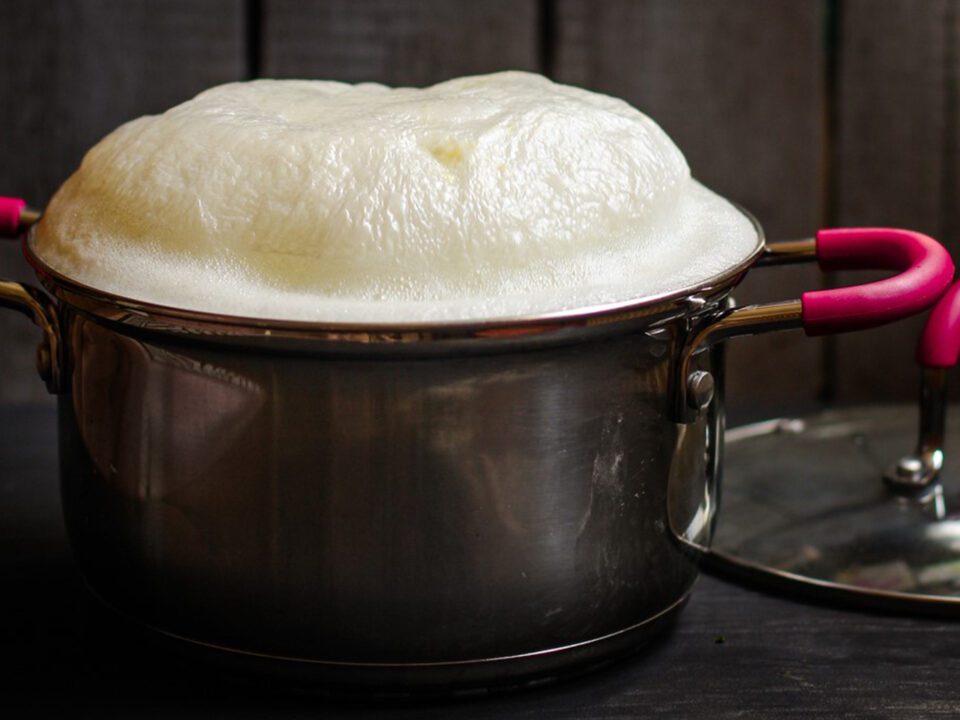
5 Simple Home Tests to check adulterated milk
April 14, 2023
Homogenized milk vs Pasteurised milk: Key differences
April 14, 2023Do cows find plastic tasty?
Did you know, 90% of urban stray cattle in India suffer from ailments due to plastic bags?
Cattle chewing plastic from an open garbage disposal is one of the most common sights on Indian roads. From sharp needles to thin polythene bags, cows are seen to consume every life-threatening material dumped openly. As reported in a 2017 Times of India, veterinary officials estimated that around 1,000 cows die each year in the northern city from ingesting plastic. Resecting up to 71 kg of plastic waste, a veterinary doctor from Faridabad operated for nearly four hours to clean the stomach chambers of cows that were mostly filled with mangled chunks of polythene bags. From serial Dairy cattle deaths in Karnataka to long hours of Plastic incision cattle consuming plastic waste is an alarming issue occurring constantly. But why are so many cows, naturally designed to be grazing animals, ingesting huge amounts of plastic? Let’s understand this menacing issue clearly
Cows are observed to be indiscriminate eaters and are diurnal mammals, meaning that they are active both day and night. They devote most of the day to grazing and the greater part of the night to chewing and reabsorbing foods consumed during the day. This behaviour is known as rumination, wherein food consumed gets regurgitates, to be swallowed completely. Anything that is to be digested travels through the complex four chambers of cow’s stomach wherein the food gets broken down gradually.
This is where the problem arises, Plastic is one of the most highly reactive and biologically aggressive materials. When indiscriminate consumers like cows eat polythene bags, the digestive chambers transpire into a poisonous punch bowl causing severe ruminal damage.
Important factors behind plastic consumption
Cows are known to be docile eaters, and they may consume various items, including garbage and litter found on the roadside. However, eating garbage waste can be dangerous and potentially lethal for cows. Here are some reasons why:
Animal husbandry practices
Lack of supervision towards cattle is one of the primary reasons for Plastic consumption. Fodder scarcity, environmental contamination, and poor standards of animal rearing propel cows to graze freely in urban spaces resulting in the accumulation of plastic foreign bodies in their rumen.
Pica
Pica is commonly seen as a behavioural condition of swallowing non-food items that don’t hold any nutritional value. This issue is widely noticed in children and dairy farm animals, especially cows. Pica in cows is a result of sodium deficiency which is in turn a result of a lack of grazing and substandard dairy practices.
Misleading plastic odour
Studies have revealed that cows find plastic odour attractive. ‘Jacobson’s organ’, a special a smell detector, gets naturally triggered and misleads in the presence of used plastic bags. Food being knotted inside polythene bags and dumped on road for several days releases a strange biochemical signature that may trick cows into confusing plastic waste for an attractive smell and even delicious food.
Lack of nutrition
Calcium and phosphorous deficiency will cause capricious appetite in dairy animals. To satisfy their hunger, animals start eating inanimate objects.
Now that we understood the reasons behind plastic consumption, let’s see what happens when cattle consume plastic waste regularly
Harmful effects of plastic on cattle

Ruminal damage
Ruminal damage due to plastic materials is a condition, in which indigestible polythene bags accumulate in the rumen of the cow, leading to ruminal impaction, indigestion, and many other adverse effects compromising cow’s health immensely.
Lower milk yield
Milking cow’s consuming plastic waste routinely gradually start to yield less milk. The presence of plastic materials in rumen interfere the absorption of fatty acids in rumen of the cattle. Thereby, plastic foreign bodies may majorly disturb the rate of milk yield.
Effect on milk of cowFeeding on garbage can affect the quality of milk produced by cows. Contaminated feed can lead to the presence of harmful bacteria, toxins, and antibiotics in milking cows, which can pose a major risk to human health if consumed.
Negative energy balance
Poor nutritional supplementation and increased energy requirement during pregnancy and lactation make the animals to be in negative energy balance status. To meet the energy requirements, animals consume inanimate objects and develop the foreign body syndrome Plastic consumption by dairy farm animals and their health is one of the most pressing issues in India. The mortality rate of cows consuming plastic and being brought to the veterinary hospital in advanced stages is no less than 70-80%.With the cattle population crossing more than192 million it is imperative to understand why mangled pieces of plastic are ending up in the stomachs of cattle. With the increase of garbage on the road, it is high-time, that the visceral amount of domestic waste disposal is controlled. Along with standard animal husbandry practices, research studies on plastic-odour connection and their relationship with the smell receptors of cattle is necessary to study and analyzed.




